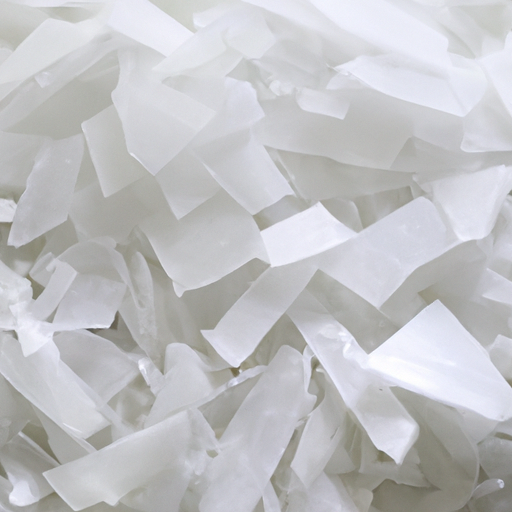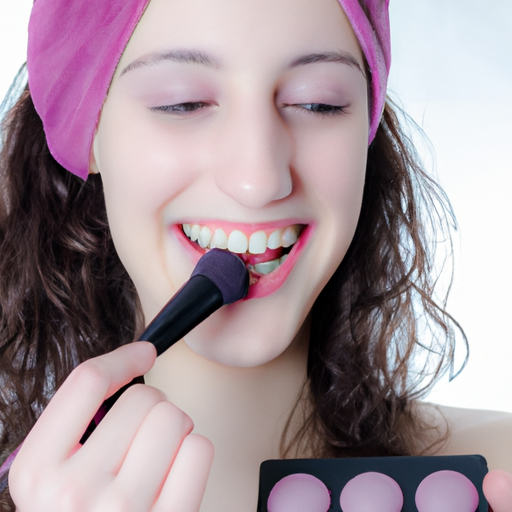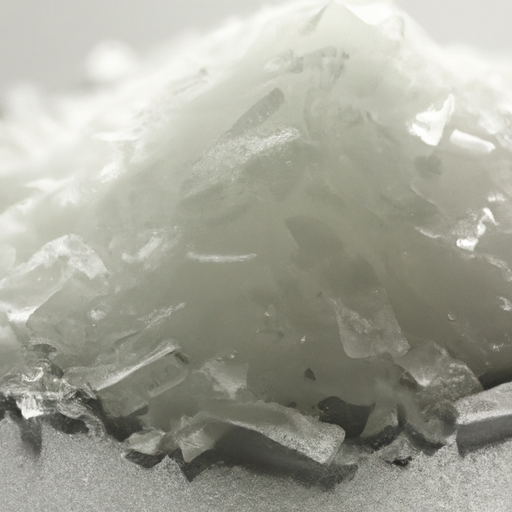The Environmental Impact of Collagen Production and Waste: A Closer Look
Click Here if You Prefer to Listen to Quick Summary Content of the Blog Post about The Environmental Impact of Collagen Production and Waste
Collagen production is a booming industry, with the global market expected to reach billions in the coming years. However, this growth also comes with environmental consequences that are often overlooked.
The process of creating collagen for beauty products involves significant water usage, energy consumption, and waste generation.
The environmental impact of collagen production starts with the sourcing of raw materials.
Traditional collagen production relies heavily on animal sources, such as bovine and marine collagen, which have been linked to deforestation, overfishing, and habitat destruction.
Moreover, the extraction and processing of collagen from these sources often involve harsh chemicals that can pollute waterways and harm ecosystems.
In addition to the environmental impact of sourcing raw materials, the waste generated during collagen production poses a significant challenge.
Scraps and byproducts from the manufacturing process often end up in landfills, contributing to the growing waste crisis. These discarded collagen scraps not only take up valuable space in landfills but also release harmful greenhouse gases as they decompose.
To address these environmental challenges, beauty companies are turning to innovative solutions to upcycle collagen scraps and reduce waste.
By finding creative ways to reuse and repurpose these scraps, such as incorporating them into new beauty products or packaging materials, companies can minimize their environmental footprint and promote a circular economy approach to production.
By shifting towards sustainable practices and embracing upcycling initiatives, the beauty industry can pave the way for a more environmentally conscious future.
Not only does reducing waste and maximizing the use of collagen scraps benefit the planet, but it also allows consumers to enjoy the full benefits of these valuable ingredients in their skincare routines.
Sustainable beauty is not just a trend but a necessary step towards a healthier planet and a more sustainable future.
Upcycling Collagen Scraps in Beauty Products: A Sustainable Solution
Collagen production in the beauty industry often results in significant waste generation, contributing to environmental concerns.
However, innovative approaches are emerging to address this issue by upcycling collagen scraps to reduce waste and maximize benefits.
By utilizing collagen scraps that would otherwise be discarded, beauty companies can adopt more sustainable practices while offering enhanced skincare solutions to consumers.
One of the key advantages of upcycling collagen scraps is the reduction of waste that would otherwise end up in landfills.
By repurposing these scraps into new beauty products, companies can minimize their environmental footprint and contribute to a circular economy model.
This approach not only helps in managing waste more effectively but also aligns with consumers’ growing demand for eco-friendly and sustainable skincare options.
Collagen scraps into beauty products can also lead to enhanced formulations with increased benefits for the skin.
Collagen is a vital protein for maintaining skin elasticity and hydration, making it a popular ingredient in anti-aging and skincare products.
By upcycling collagen scraps, manufacturers can create potent formulations that deliver the same benefits as traditional collagen products while being more environmentally friendly.
Furthermore, upcycling collagen scraps aligns with the broader trend of sustainability in the beauty industry.
Consumers are becoming more conscious of the environmental impact of the products they use and are actively seeking out brands that prioritize sustainability.
By incorporating upcycled collagen into their formulations, beauty companies can appeal to eco-conscious consumers and differentiate themselves in a competitive market.
Upcycling collagen scraps in beauty products offers a sustainable solution to reduce waste and maximize the benefits of this valuable ingredient.
By embracing innovative approaches to skincare production, companies can not only contribute to a healthier planet but also meet the evolving needs of environmentally conscious consumers.
Sustainable beauty is not just a trend but a necessity in today’s world, and upcycling collagen scraps is a step in the right direction towards a more eco-friendly and ethical beauty industry.
The Role of Sustainable Packaging in the Beauty Industry
The beauty industry is increasingly focusing on sustainability, with a significant emphasis on the environmental impact of packaging.
Sustainable packaging plays a crucial role in reducing waste and minimizing the carbon footprint of beauty products.
As consumers become more environmentally conscious, there is a growing demand for eco-friendly packaging solutions that align with their values.
One of the key aspects of sustainable packaging is the use of recycled materials.
By utilizing materials that have been repurposed or recycled, beauty brands can significantly reduce the amount of waste generated during the production process.
Additionally, biodegradable packaging materials help minimize the environmental impact once the product is disposed of, ensuring that it does not contribute to landfills or harm ecosystems.
Another important consideration in sustainable packaging is the concept of minimalism. This approach involves simplifying packaging designs to eliminate excess materials and reduce overall waste.
By opting for minimalist packaging, beauty brands not only decrease their environmental footprint but also present a clean and modern aesthetic that resonates with eco-conscious consumers.
Furthermore, refillable packaging has emerged as a popular sustainable solution in the beauty industry.
By offering refill options for products such as creams, serums, and powders, brands encourage customers to reuse existing containers, reducing the need for additional packaging materials.
Refill stations in retail locations or convenient refill pouches mailed to customers promote a circular economy model that minimizes waste and maximizes product lifespan.
In addition to material choices and design considerations, the transportation and distribution of beauty products also impact sustainability.
Optimizing logistics to reduce fuel consumption, embracing renewable energy sources, and implementing efficient supply chain practices all play a vital role in minimizing the carbon footprint of beauty packaging.
Sustainable packaging in the beauty industry is not just a trend but a necessity in a world increasingly concerned about environmental preservation.
By prioritizing eco-friendly materials, embracing minimalist designs, promoting refillable options, and optimizing distribution practices, beauty brands can contribute to a more sustainable future while meeting the demands of environmentally conscious consumers.

Benefits of Using Collagen Scraps: A Win-Win for the Environment and Skincare
Collagen is a vital protein that plays a significant role in maintaining the skin’s elasticity, firmness, and overall youthful appearance.
However, the traditional production of collagen often leads to a considerable amount of waste, which can have detrimental effects on the environment.
By focusing on sustainable beauty practices and utilizing collagen scraps, we can reduce waste and maximize the benefits for both the environment and skincare.
One of the primary benefits of using collagen scraps in beauty products is the positive environmental impact it creates.
Rather than discarding these valuable scraps as waste, incorporating them into skincare formulations helps to minimize the environmental footprint of collagen production.
This sustainable approach aligns with the growing demand for eco-friendly beauty products and promotes a circular economy where resources are reused efficiently.
In addition to benefiting the environment, utilizing collagen scraps in skincare products offers enhanced benefits for the skin.
Collagen scraps contain valuable peptides and amino acids that can help support the skin’s natural collagen production, leading to improved elasticity and firmness.
By harnessing the power of these bioactive compounds, skincare products enriched with collagen scraps can help reduce the appearance of fine lines and wrinkles, promoting a more youthful complexion.
Furthermore, incorporating collagen scraps into beauty products can contribute to a more sustainable skincare routine for consumers.
As awareness of environmental issues continues to grow, more consumers are seeking out products that align with their values of sustainability and ethics.
By choosing skincare products that utilize collagen scraps, individuals can actively participate in reducing waste and supporting eco-conscious beauty practices while enjoying the benefits of high-quality, effective products.
Collagen scraps also offer a cost-effective solution for beauty brands looking to enhance the efficacy of their skincare formulations.
Instead of relying solely on traditional collagen sources, such as animal hides or fish scales, companies can repurpose collagen scraps to create innovative products that deliver superior results.
This approach not only reduces waste but also maximizes the benefits of collagen, creating a win-win situation for both the environment and the skincare industry.
The use of collagen scraps in beauty products represents a sustainable and forward-thinking approach to skincare.
By prioritizing environmental responsibility and leveraging the benefits of collagen scraps, beauty brands can meet the growing demand for eco-friendly products while offering consumers effective solutions for their skincare needs.
Embracing this holistic approach to beauty not only supports a healthier planet but also ensures a brighter future for the industry and the consumers it serves.
Collaborating with Suppliers for More Sustainable Collagen Sourcing
In the beauty industry, the movement towards sustainability is gaining momentum, with more companies realizing the importance of reducing their environmental impact.
Collagen, a popular ingredient in skincare products known for its anti-aging properties, is one area where innovative approaches can make a significant difference.
Collaborating with suppliers to enhance sustainable practices in collagen production and sourcing is becoming increasingly important.
One key aspect of collaborating with suppliers for sustainable collagen production is the emphasis on ethical sourcing.
This involves ensuring that the collagen used in beauty products comes from responsible and traceable sources.
By working closely with suppliers who prioritize ethical practices, beauty brands can be confident that the collagen scraps used in their products are obtained in a way that respects both the environment and animal welfare.
Furthermore, promoting transparency in the supply chain is essential for ensuring sustainable collagen practices.
Beauty companies can achieve this by partnering with suppliers who are committed to providing detailed information about the origin of collagen scraps, production processes, and any certifications obtained, such as organic or cruelty-free labels.
This transparency not only builds trust with consumers but also encourages suppliers to maintain high sustainability standards.
Another crucial aspect of collaborating with suppliers for sustainable collagen production is exploring innovative ways to reduce waste.
By finding creative solutions to utilize collagen scraps that would otherwise be discarded, beauty brands can minimize environmental impact and maximize the benefits of this valuable ingredient.
Whether it’s repurposing collagen remnants for new products or incorporating them into packaging materials, these initiatives contribute to a circular economy model that prioritizes sustainability.
Moreover, engaging in open communication with suppliers is key to fostering a collaborative partnership focused on sustainability.

By sharing best practices, setting clear sustainability goals, and regularly evaluating performance, beauty brands can work towards continuous improvement in their collagen sourcing strategies.
This collaboration not only drives positive change within the industry but also sets a precedent for responsible sourcing practices that can inspire others to follow suit.
Collaborating with suppliers for more sustainable collagen sourcing is essential for driving positive change in the beauty industry.
By prioritizing ethical practices, promoting transparency, reducing waste, and maintaining open communication, beauty brands can make significant strides towards a more sustainable future.
Through these collaborative efforts, the beauty industry can harness the benefits of collagen while minimizing its environmental footprint, paving the way for a more sustainable and ethical approach to skincare.
Conclusion
In today’s beauty industry, the environmental impact of collagen production and waste has become a pressing concern.
As the demand for collagen-based products continues to rise, so does the need for sustainable practices to reduce the carbon footprint of the industry.
By recognizing the value of collagen scraps and exploring innovative ways to upcycle them in beauty products, companies can significantly decrease waste while maximizing the benefits of this valuable ingredient.
The creative use of collagen scraps not only helps in waste reduction but also offers a range of benefits for skincare enthusiasts.
These upcycled collagen products are not only environmentally friendly but also effective in delivering the desired skincare results.

By incorporating collagen scraps into their formulations, beauty brands can offer consumers products that are potent, sustainable, and socially responsible.
Sustainable packaging plays a crucial role in the beauty industry’s efforts to minimize its environmental impact.
From biodegradable containers to refillable jars, brands are increasingly adopting eco-conscious packaging solutions to reduce waste and limit their carbon footprint.
By prioritizing sustainable packaging practices, companies can further enhance their commitment to environmental stewardship and meet the growing demand for greener beauty alternatives.
The benefits of using collagen scraps extend beyond environmental conservation to the realm of skincare effectiveness.
Collagen is a key ingredient known for its anti-aging and skin-rejuvenating properties.
By upcycling collagen scraps, beauty brands can harness the power of this ingredient while promoting sustainable practices that benefit both the environment and consumers.
It’s a win-win situation that highlights the transformative potential of repurposing waste in the beauty industry.
Collaborating with suppliers is essential for promoting more sustainable collagen sourcing practices.
By working closely with suppliers to ensure responsible sourcing and production methods, beauty brands can uphold high standards of sustainability throughout their supply chain.
Establishing strong partnerships with suppliers who share a commitment to environmental stewardship is key to driving positive change within the industry and fostering a more sustainable future for collagen production.
The beauty industry’s shift towards sustainable practices is evident in the rise of initiatives focused on reducing waste, upcycling valuable ingredients like collagen scraps, adopting eco-friendly packaging, and collaborating with suppliers to promote sustainable sourcing.
By embracing these innovative approaches, beauty brands can minimize their environmental footprint, deliver high-quality skincare products, and meet the evolving needs of conscientious consumers.
Sustainable beauty is not just a trend—it’s a necessity for safeguarding the planet and promoting a more ethical and sustainable approach to skincare.

